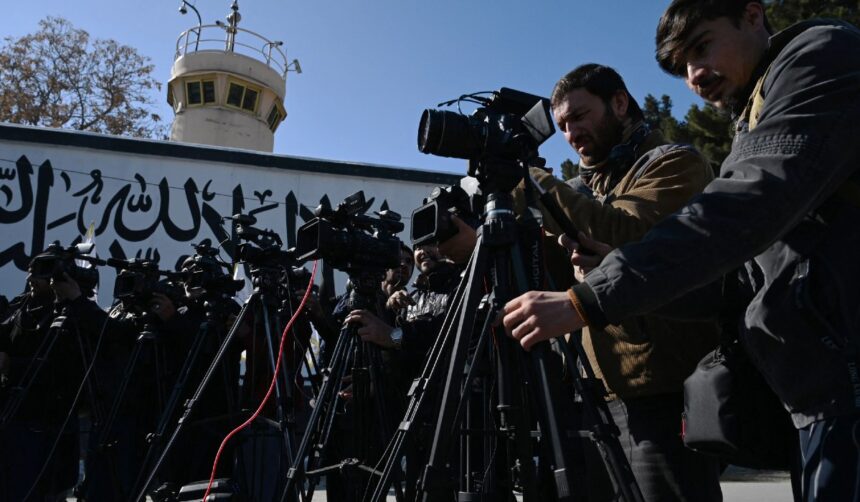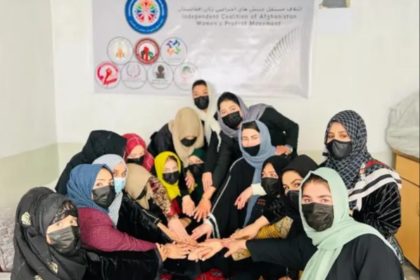RASC News Agency: The United Nations Assistance Mission in Afghanistan (UNAMA) has issued a grave warning over a newly imposed media directive by the Taliban, stating that the decree significantly tightens the group’s grip on public discourse and represents yet another devastating blow to press freedom in the country. In a statement released on Thursday, July 10, UNAMA described the regulation as an authoritarian escalation that is sowing fear, self-censorship, and psychological pressure across Afghanistan’s already battered journalistic community. The statement, published on the mission’s official account on X (formerly Twitter), denounced the Taliban’s latest restrictions as a dangerous codification of media suppression under the false guise of “national unity” and “Islamic values.” According to UNAMA, the directive entrenches existing constraints on political speech and formalizes mechanisms for state control over editorial content.
“The new media directive legitimizes prior censorship, mandatory content approval, and a system of ideological filtering that is rapidly silencing any remaining independent voices in Afghanistan,” the statement reads. “It exacerbates an environment already riddled with fear, eroding what little remains of press freedom.” Under this decreeceuphemistically titled the “Policy for Managing Political Programs in Afghanistan” all broadcast, print, and digital media are now required to submit the full list of topics, speakers, and political analysts for prior approval by the Taliban’s Ministry of Information and Culture. Even previously authorized commentators must undergo re-approval for every new appearance. This unprecedented level of control is nothing less than an attempt to erase critical thinking from Afghanistan’s public discourse.
Taliban officials claim the move is aimed at preventing “sectarian, ethnic, and linguistic divisions” and promoting “national unity” based on their interpretation of Islam. But critics say the regulation is a calculated tactic to enforce ideological conformity, erase dissent, and institutionalize state propaganda, replacing independent journalism with Taliban-sanctioned disinformation. International media advocates and human rights defenders have condemned the directive as part of a broader effort by the Taliban to dismantle the foundations of democratic society and crush the last vestiges of civil liberties. The requirement for journalists and analysts to carry official identification cards issued by Taliban authorities combined with an absolute ban on any dissenting opinions amounts to an attempt to convert the media into a tool of indoctrination rather than information.
“What is unfolding in Afghanistan is not media regulation it is media extermination,” said one Kabul-based journalist, speaking anonymously due to fears of reprisal. “This policy strips the press of its core purpose: holding power to account.” UNAMA warned that the cumulative impact of such policies will not only silence the media but also extinguish the basic right of the Afghanistani people to receive reliable, independent information. Without a free press, the agency stressed, society becomes vulnerable to tyranny, secrecy, and unchecked abuse. “Freedom of the press is not a luxury; it is the lifeblood of democratic governance,” UNAMA declared. “The Taliban’s crackdown on media is eroding truth itself and dragging Afghanistan into an abyss of fear and silence.”
This warning aligns with the earlier remarks by Richard Bennett, the UN Special Rapporteur on the situation of human rights in Afghanistan, who described the Taliban’s actions as “another dark day for Afghanistan’s journalism” and a “symbol of deepening authoritarianism.” Since seizing power in August 2021, the Taliban have led a systematic campaign to suffocate Afghanistan’s once-vibrant media sector. Independent outlets have been shut down, journalists detained, and hundreds of media professionals forced into exile or silenced through intimidation. The few that remain operate under constant surveillance, arbitrary detention threats, and increasingly restrictive directives such as this latest decree.
In truth, the Taliban’s claim of “preserving Islamic values” through censorship is a strategic manipulation a cover for consolidating power, eliminating criticism, and maintaining an ideological regime that views free thought as a threat. In doing so, they are not merely violating international norms they are extinguishing hope. As international watchdogs and press freedom organizations intensify calls for accountability, many urge the global community not to normalize relations with a regime that views information as a weapon to be controlled, rather than a right to be protected.






